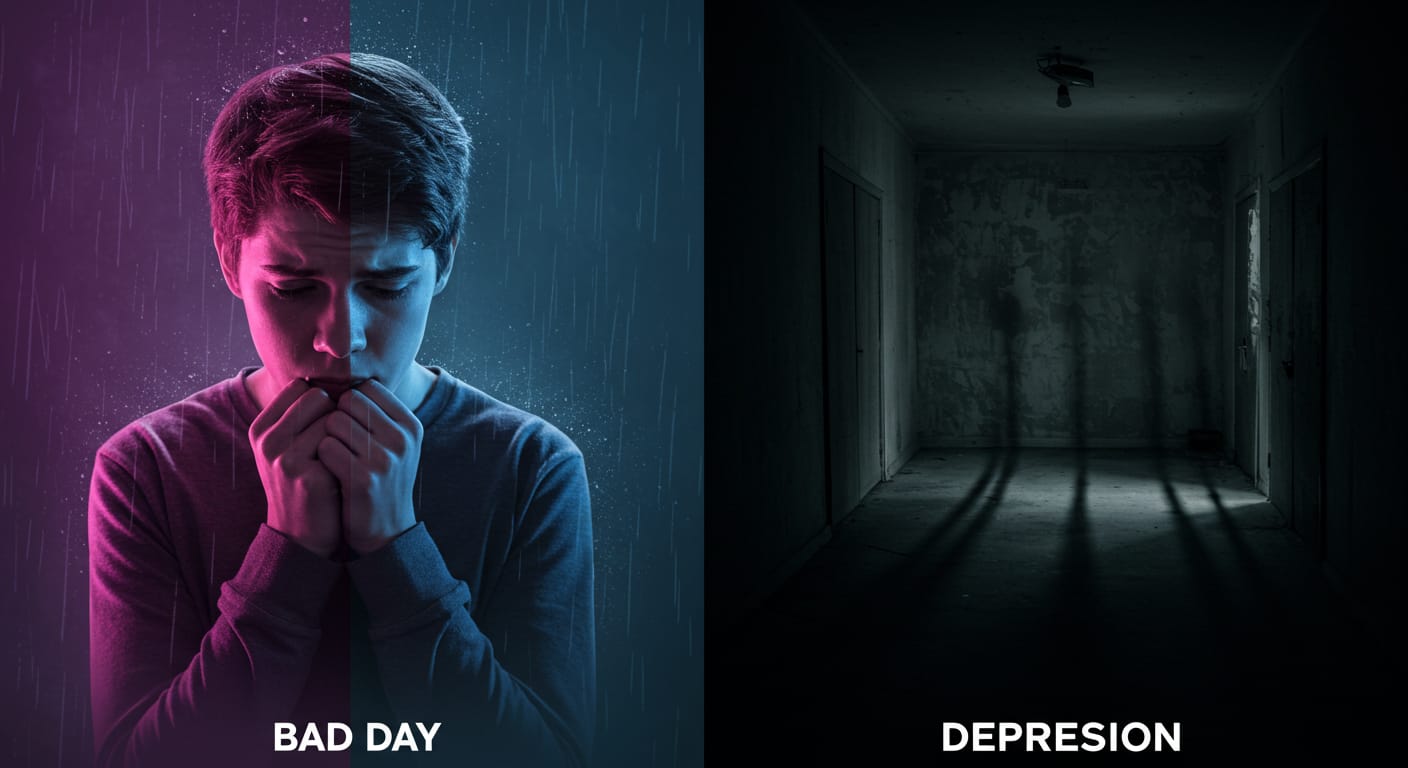Bad Day or Something Deeper?
Teen depression often hides behind what looks like “just a bad day.” If your son or daughter is moping around, withdrawing, or acting irritable, your first thought may be, “Maybe something happened at school.” And often, that’s true.
Teens have their moody moments. But if your child’s sadness or irritability persists or intensifies, you may be seeing the early signs of depression.
Understanding the difference between a typical bad day and clinical depression is one of the most important things a parent can do.
What a Normal Bad Day Looks Like
Adolescence is filled with emotional highs and lows. A bad day might involve:
-
Mood swings
-
General irritability
-
Being upset over an argument with a friend or a bad grade
-
Wanting to be left alone for a while
-
Some attitude or backtalk
These signs are frustrating but temporary, and your teen usually bounces back after some rest or support.
But Is It Depression?
If your child is struggling with depression, their behavior may go beyond typical teen drama:
-
Persistent sadness or emptiness that lasts for more than two weeks
-
Withdrawal from friends, hobbies, or family activities
-
Loss of interest in things that once brought joy
-
Talk of worthlessness, guilt, or hopelessness
-
Changes in sleep — insomnia or oversleeping
-
Extreme fatigue or lack of energy
-
Anger outbursts, fights, skipping school, or even breaking the law
-
Reliance on alcohol or drugs as a coping mechanism
“I’m tired of trying to be okay. I want someone to notice I’m not.”
— Anonymous teen voice
Pay Attention to Behavior & Language
The way your teen describes themselves can say a lot:
-
“I’m a failure.”
-
“Nobody would miss me.”
-
“I don’t care anymore.”
Even if said casually, don’t dismiss these red flags. Trust your instincts. If something feels off, it probably is.
How to Help
-
Start a conversation in a safe, non-judgmental way.
-
Ask open-ended questions and really listen.
-
Avoid minimizing their feelings.
-
Seek professional support if signs persist or worsen.
You don’t need all the answers—you just need to show up, stay involved, and be willing to get help.
Final Thoughts
Every teen will have a bad day. But when that bad day doesn’t go away, it could be depression. Knowing the difference could save your child’s life.



This is really helpful. My oldest is only 10 and he’s already moody, so I will keep these in mind for when he;s a little older.
Robin Rue, We have to hope this is only a phase and if not seek advice if mood becomes prolong.
My daughter is only 3 I have many years before I have to worry about any of this! Will keep these things in mind for when she’s older 🙂
It is very important to learn to identify the signs of depression. It’s a serious problem we should face before it gets worst. Thanks for sharing!
Tatanisha, Knowing the difference and bring teenage depression awareness to the forefront before it’s too late.
Thank you for sharing helpful tips, I will need this soon once my kids grow old.
It is important to know the signs and the differences. I think if you suspect it’s depression you should absolutely seek help.
Yea, this is a tough one, a lot of kids do suffer from depression and parents are clueless. Great post on the subject.
These are very helpful. It’s not easy to know whether a teen is suffering from a bad day or depression. Thanks for sharing this.
I thought that it was the same, because bad day can be easily disappeared while depression can be take longer.
Shabby chic Boho, There is a difference having a bad day or being depressed which take longer to get out of that rut. Important if not sure seek help.
Good points here. Depression is no joke but teens can be overdramatic sometimes. It helps to know the difference!